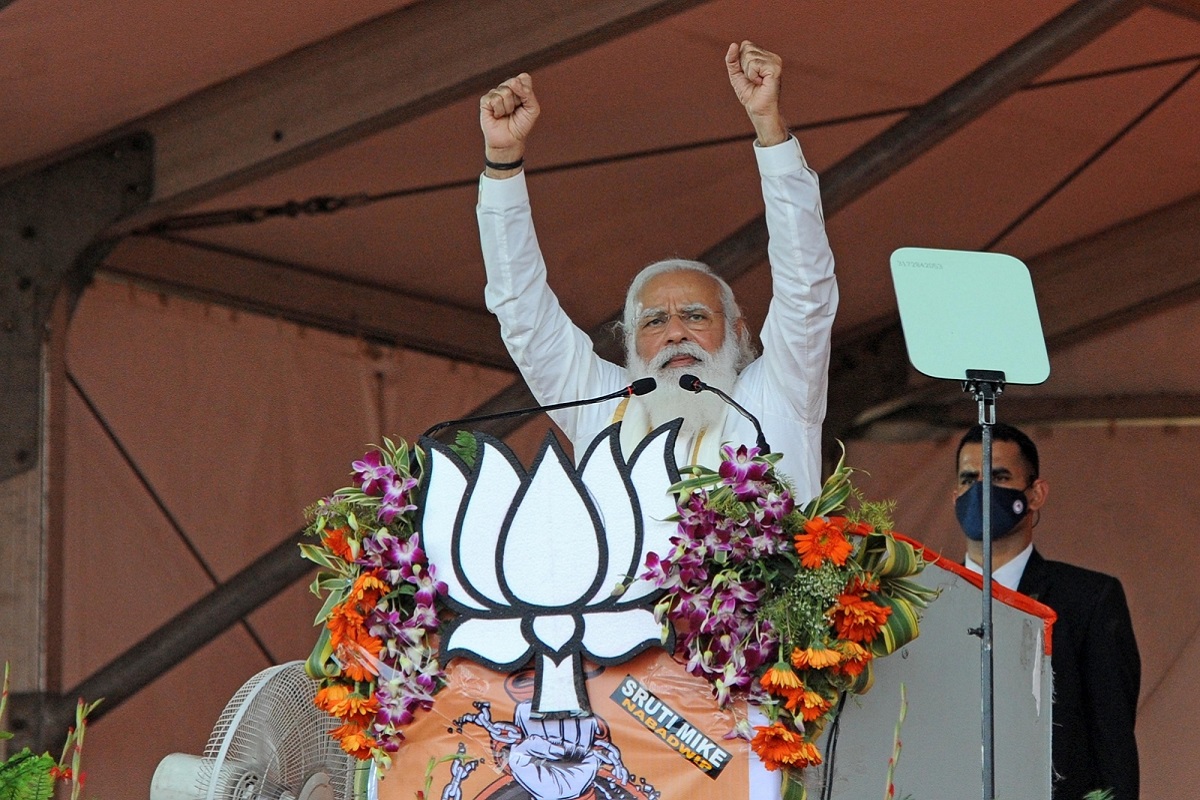“Modi govt’s objective is to stay in power by any means”: Priyanka Gandhi in Wayanad
She praised the people of Wayanad for standing up for what is right and fighting against oppressors.
Prime Minister Narendra Modi completed eight years in office on May 30. How has he steered the country during this period? Since the expectations were too high, has he been able to fulfil them? What are the hits and misses in these years?

(Photo: Kuntal Chakrabarty/IANS)
Prime Minister Narendra Modi completed eight years in office on May 30. How has he steered the country during this period? Since the expectations were too high, has he been able to fulfil them? What are the hits and misses in these years? It depends on whom you ask because Mr Modi’s supporters claim that he has saved the country from disaster, while his opponents give a directly opposite reaction.
There have been many hits and a few misses. After Mr Modi became the Prime Minister, he sought ten years to transform the country. He himself said last week, “This month, the NDA government will complete eight years. These eight years have been of resolutions and accomplishments. These eight years have been committed to service, good governance, and welfare of the poor.”
Advertisement
Mr Modi’s government has taken several bold decisions. First of all, the Prime Minister has grown in stature nationally and internationally. He has become the undisputed leader of the BJP and has taken the party to new heights by making it the biggest party in India. In Rajya Sabha, where the party was in a minority in 2014, it is near a majority, now reaching three digits. Geographically, the BJP has also won unconquered areas, particularly in the northeast, where it had no presence. There are still the southern states that the BJP is yet to conquer.
Advertisement
Secondly, Mr Modi has fulfilled most of the core agenda of the Sangh Parivar including building the Ram temple in Ayodhya, repealing Article 370, Citizenship act amendments to provide citizenship for minorities from neighbouring countries, etc. On 5 August 2019, the Modi government took a big decision regarding Jammu and Kashmir. Parliament abolished special rights given to Jammu and Kashmir under Article 370 of the Constitution.
The Triple Talaaq bill passed on 1 August 2019, brought massive relief to Muslim women whose husbands divorced them after saying talaq thrice. The only remaining thing from the BJP’s core agenda is the uniform civil code.
Thirdly, Mr Modi has decimated the main opposition Congress party. He has also weakened and divided the Opposition. Despite many attempts, the other parties cannot unite even in Parliament. They are more against each other than against the BJP. Fourthly, Mr Modi successfully fought the Covid pandemic that hit the country in 2020. India and the world were unprepared to handle the pandemic. However, Mr Modi took the people, chief ministers, and medical personnel into confidence and devised a strategy. The government encouraged vaccine production and even exported them to needy, neighbouring countries.
However, there were areas which could have been handled better, such as the migration of labour and the loss of jobs.
Fifthly, the Prime Minister has asserted an independent foreign policy. He has also raised India’s profile abroad. Despite pressure from the West, India kept a balanced approach to the Ukraine crisis and refused to give in to any outside force. With turbulence in the Indian neighbourhood, India has tried to help Sri Lanka in its crisis and also Nepal. As far as Pakistan, New Delhi is watching the regime change.
Sixthly, due to the Modi government’s “zero-tolerance” policy against terrorism, India has not seen any major terror attacks since 2014. He has also implemented a muscular policy. For instance, the Indian government avenged the Uri killings on 18 September 2016, by Pakistan by conducting a surgical strike in Pakistan Occupied Kashmir (PoK). The other bold decision was to direct the Indian Air Force to carry out an air strike in Balakot in response to an earlier attack in Pulwama on 26 February 2019.
Though Mr Modi promised to change India’s economic fortunes in 2014, that remains his primary failure, and the pandemic made things worse. The health sector needs massive allocations. The government prioritised the delivery of some critical schemes, including Ayushman Bharat, Ujjwala, Swachch Bharat, PM Awaas, and Jan Dhan, among others. Each of these projects is hailed as ground-breaking by his supporters and catastrophic by the opposition.
In October 2016, Mr Modi took India by surprise with the demonetisation to curb black money, but it was a disaster. But there have been significant structural reforms, such as the bankruptcy law, legislation to regulate the real estate business, and a new framework for monetary policy. The introduction of GST was a breakthrough, although some states have complained about their share of revenues. Opposition parties are critical of rising inflation and fuel prices. The main Opposition party, Congress, has listed spiralling fuel prices, unemployment, state of the economy, condition of farmers, communal situation, a dip in budgetary allocations for many social welfare schemes, and the stand-off at the borders with China as the major failures of the Modi government during its eight years in power.
With two more years left, Mr Modi is looking for a third term, and he might well get it if the Opposition continues to be divided. This will give him a chance to address the unfulfilled items on his agenda.
Advertisement